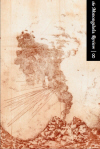The Monongahela Review – Fall 2013
Go to The Monongahela Review’s website, and you won’t find out much about the journal by just browsing. Without much information or submission guidelines, you really have to read the journal to get to know it. Download the PDF or open it in Issuu, and get cozy.
Go to The Monongahela Review’s website, and you won’t find out much about the journal by just browsing. Without much information or submission guidelines, you really have to read the journal to get to know it. Download the PDF or open it in Issuu, and get cozy.
Joan Colby delves into the alphabet form in her poem “Choices” which begins:
Anomalies of weather.
Bone of a bad notion. Bitter
Cider. What does it mean to compose such
Dirges. When what you want is a quiet
Estuary, the banks sloped . . .
Derek Gromadzki experiments with pauses and sighs in his poem “Sospira,” setting the tone from the very beginning: “Come the being we call calm / from the motion that bodies tick out to measure time.” The repetitive “s” sounds sooth throughout, lulling as the lines move back and forth:
thrummed rhythm-through shaken slack into surrender
and apparitions disbanded in the seam between stares
So long a waste a time without
walked into through and through
Brenda Lynaugh’s “A Play for Tamara” tackles an unrequited love that starts in high school and has a bit of finality now that the main character has graduated college. Visiting his best friend Tamara at her university, he feels that even though she has a boyfriend, he needs to sort out his feelings: “He’d come to see her because of their history, because maintaining friendship was important, but he knew that wasn’t the whole truth.” Is he still in love with her? Or is it lust? Are the things she does actually endearing, or does he just view it that way because he likes her? There’s no resolution, but one thing is clear, relationships are messy.
And Ping, a character from Moria Moody’s “The Great Yu,” knows this sentiment all too well. Raising her son Qi in the United States while still struggling to speak English herself, she runs into conflict as the lies she tells him about his father and the way he meshes into this new culture both drive a growing fissure in their relationship: “Ping knows her son changes with every season. He is always slipping away from her, and she studies to stay close.”
So while the website may not offer much, there is plenty of poetry and prose and art to delve into once you’re inside the issue, and there is plenty to enjoy there.
[www.monreview.com]






